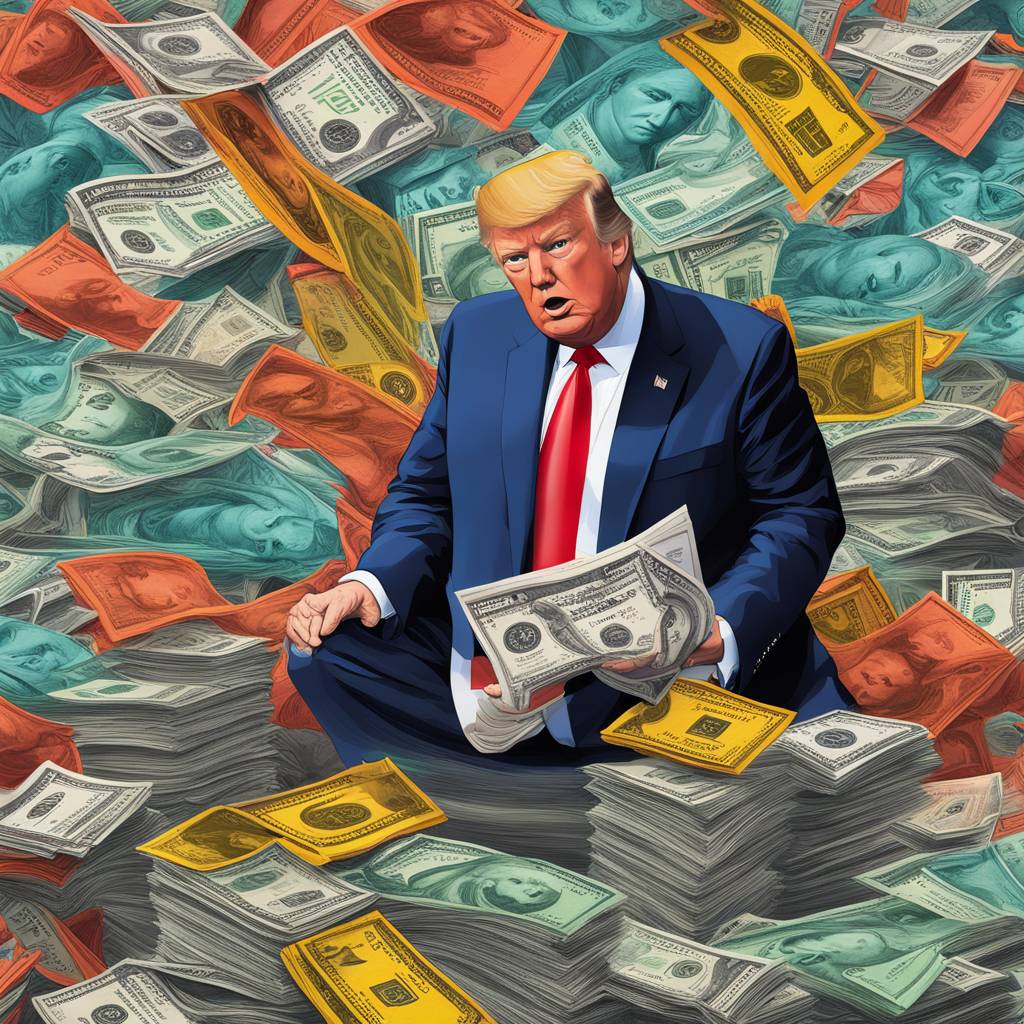Former President Donald Trump, facing financial challenges, has turned to selling various items like sneakers and country music-themed Bibles to generate income. However, details about Trump’s income sources have not been publicly disclosed since 2020, as he has not voluntarily released his tax returns. His tax returns, which Democrats have been trying to obtain, are important for evaluating candidates and ensuring transparency. Trump, who recently put up a $92 million bond in a defamation lawsuit, faces the need to raise $175 million for another civil case in New York. While he claims to have ample funds to cover these legal expenses, there are doubts about his ability to raise such significant amounts without borrowing money.
Trump has refused to release his taxes since the 2016 campaign, citing an audit as the reason. After Democrats took control of Congress in 2019, they tried to obtain his tax returns through legal means. The Supreme Court eventually allowed lawmakers access to six years of Trump’s returns, but Democrats have shown reluctance to pursue further action to disclose them. A proposed bill would require presidential nominees to disclose their tax returns within 15 days of being nominated, with the Federal Election Commission obtaining them from the IRS if they fail to do so. Senator Ron Wyden may seek a Senate vote on this bill if Trump does not disclose his returns after the GOP convention.
Critics argue that the responsibility to demand disclosure of Trump’s tax returns should not solely fall on Democrats and that Republicans should also push for transparency. Trump’s legal battles and financial difficulties have raised questions about his ability to defend against legal challenges without government resources, as he did while president. The lack of transparency regarding his taxes and financial dealings has implications for national security and the potential influence of foreign interests on his candidacy.
Trump’s recent financial struggles, including the need to raise significant funds for legal expenses, have raised concerns about where he may obtain the necessary funds. While he claims to have substantial personal wealth, his ability to cover these expenses without borrowing money or seeking financial help from foreign entities remains uncertain. The lack of recent financial disclosure and ongoing legal battles have cast a shadow over his post-presidency financial situation. The reluctance of lawmakers to pursue further action to obtain his tax returns has left a gap in public knowledge about his finances and potential conflicts of interest.
The standoff over Trump’s tax returns highlights the importance of financial transparency for political candidates and potential officeholders. The ongoing legal battles and financial challenges facing Trump raise questions about his ability to meet his financial obligations and the potential impact of his financial situation on his candidacy. While Trump insists he has sufficient funds to cover his legal expenses, doubts remain about his ability to raise the necessary funds without external assistance. The debate over financial transparency and accountability for political candidates underscores the need for bipartisan support for efforts to ensure transparency in financial dealings.








